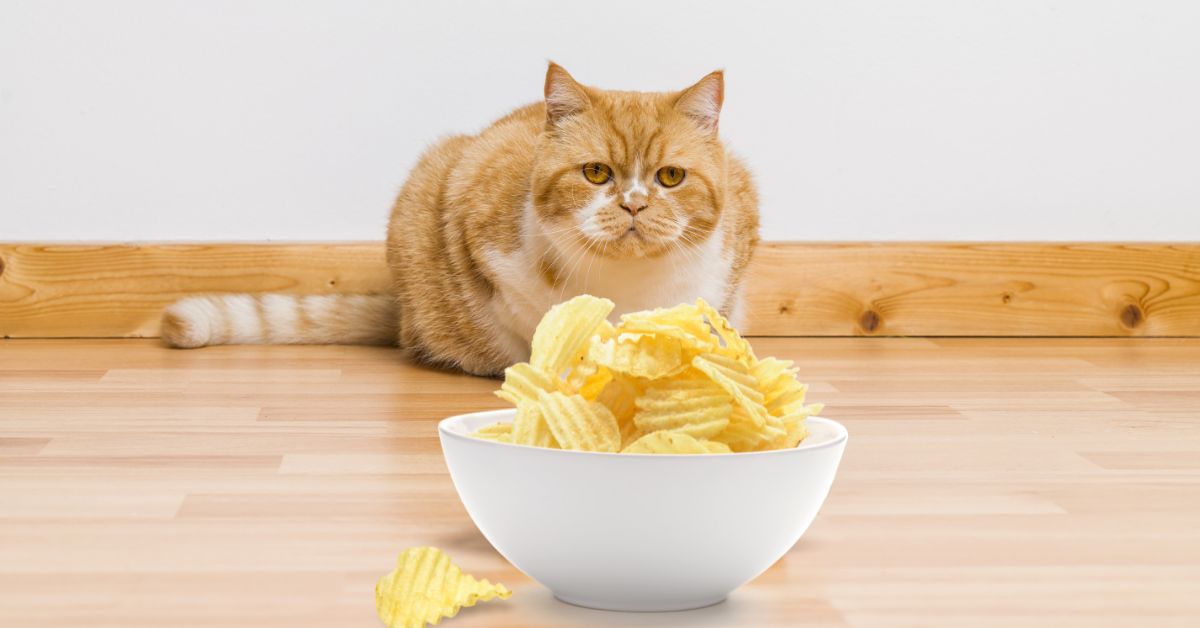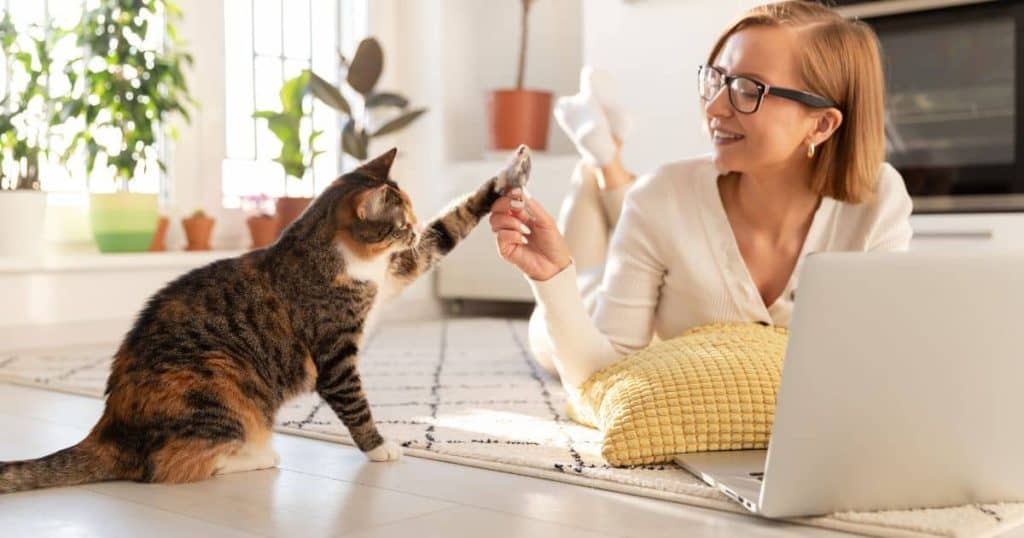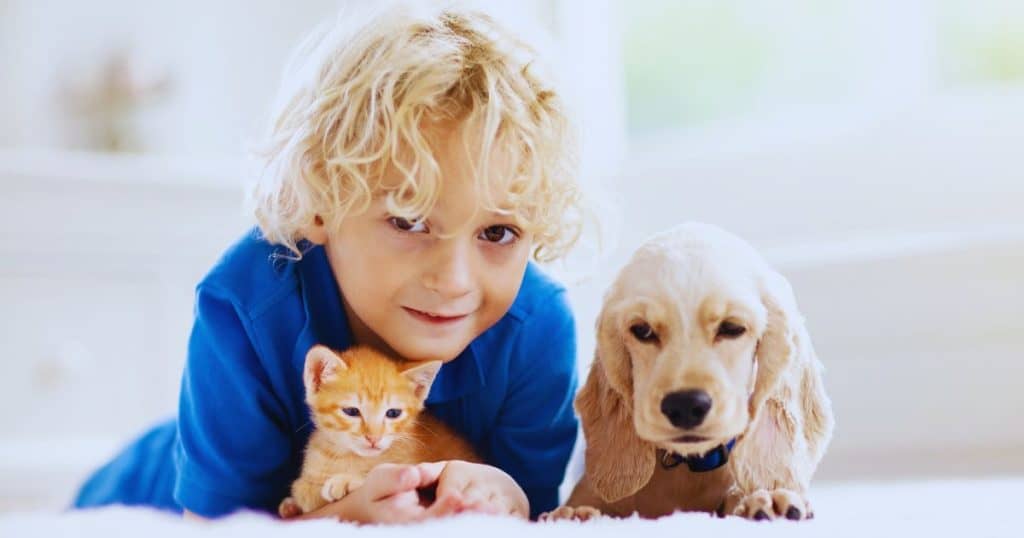Potato chips are a popular snack among humans, and it’s not uncommon for pet owners to share their food with their furry friends. However, when it comes to cats, it’s essential to be mindful of what they eat. As a cat owner, you may be wondering whether it’s safe to give your feline companion some potato chips.
While cats can technically eat potato chips, it’s not recommended. Potato chips are high in salt, fat, and calories, which can lead to obesity and other health issues in cats. Additionally, potato chips lack essential nutrients that cats need to maintain a healthy diet. Therefore, it’s best to avoid feeding your cat potato chips altogether. If you’re looking for a treat to give your feline friend, there are plenty of cat-friendly options available that are both safe and nutritious.
Can Cats Eat Potato Chips?
As a cat owner, you might be wondering if it is safe to feed your furry friend potato chips. The short answer is that while potato chips are not toxic to cats, it is not recommended to feed them to your cat.
Nutritional Considerations
Potato chips are not a nutritious food for cats. They are high in fat, salt, and calories, which can lead to obesity and other health problems. Additionally, potato chips do not contain any essential nutrients that cats need to stay healthy.
Cats are obligate carnivores, which means that they require a diet that is high in protein and low in carbohydrates. Feeding your cat a diet that is high in carbohydrates, such as potato chips, can lead to health problems such as diabetes and obesity.
Health Risks
Feeding your cat potato chips can also pose other health risks. The high salt content in potato chips can lead to dehydration, which can be especially dangerous for cats. Additionally, the oils and seasonings used to make potato chips can cause digestive upset, including vomiting and diarrhea.
In conclusion, while cats can technically eat potato chips, it is not recommended. Potato chips do not provide any nutritional benefits to cats and can lead to health problems such as obesity, diabetes, and digestive upset. As a responsible cat owner, it is best to stick to a diet that is specifically formulated for cats and avoid feeding them human foods, including potato chips.
Understanding Cat Nutrition
As a cat owner, it’s important to understand the nutritional needs of your feline friend. Feeding your cat a well-balanced diet is crucial for maintaining their overall health and well-being.
Essential Nutrients for Cats
Cats are obligate carnivores, which means they require a diet that is high in animal protein. Some of the essential nutrients that cats need include:
- Protein: Cats need protein to build and maintain muscle mass, and to support their immune system.
- Fat: Fat is a source of energy for cats, and it also helps to keep their skin and coat healthy.
- Vitamins: Cats require a variety of vitamins, including vitamin A, D, E, and K, to support their overall health.
- Minerals: Cats need minerals like calcium, phosphorus, and magnesium to maintain strong bones and teeth.
Comparing Cat and Human Food
While cats and humans have some similar nutritional needs, there are also some key differences. For example, cats require a higher amount of protein in their diet than humans do. Additionally, cats require certain nutrients, like taurine, which are not found in human food.
It’s important to note that many human foods, including potato chips, are not appropriate for cats. Potato chips are high in salt, fat, and carbohydrates, which can lead to health problems in cats if consumed regularly. While cats can eat potato chips in moderation, it’s best to stick to a diet that is specifically formulated for their nutritional needs.
Safe Snacking for Cats
As a cat owner, it’s important to make sure that your feline friend is getting the proper nutrition they need. While it may be tempting to share your snacks with your cat, it’s important to be mindful of what you’re feeding them. Potato chips, for example, are not a healthy snack option for cats. They are high in sodium, fat, and calories, while providing little nutritional value.
Healthy Alternatives to Potato Chips
If you’re looking for a healthy snack option for your cat, there are plenty of alternatives to potato chips. Some examples include:
- Cooked chicken or turkey: These lean meats are a great source of protein for cats.
- Cooked fish: Fish is also a good source of protein for cats, but make sure it’s cooked and boneless.
- Small amounts of fruits and vegetables: Some cats enjoy small amounts of fruits and vegetables, such as blueberries or cooked green beans.
It’s important to keep in mind that cats are obligate carnivores, meaning that their diet should consist mainly of meat. While fruits and vegetables can be a healthy addition to their diet, they should not make up a large portion of their meals.
How to Introduce New Snacks to Cats
When introducing new snacks to your cat, it’s important to do so gradually. Start by offering a small amount of the new snack and monitor your cat’s reaction. If they seem to enjoy it and have no adverse reactions, you can gradually increase the amount you offer.
It’s also important to keep in mind that some human foods can be toxic to cats. Foods such as chocolate, onions, and garlic should be avoided. If you’re unsure whether a particular food is safe for your cat, it’s best to err on the side of caution and avoid it altogether.
In conclusion, while potato chips may be a tasty snack for humans, they are not a healthy option for cats. Instead, opt for healthy alternatives and introduce new snacks to your cat gradually. By doing so, you can ensure that your feline friend is getting the proper nutrition they need while still enjoying the occasional treat.
Toxic Foods for Cats
As a cat owner, it is important to be aware of the foods that are toxic to cats. While some human foods are safe for cats, others can cause serious health problems and even death. In this section, I will discuss some common household foods to avoid feeding to your feline friend.
Common Household Foods to Avoid
- Onions and Garlic: These common kitchen ingredients can cause damage to a cat’s red blood cells, leading to anemia. Even small amounts of onion or garlic can be toxic to cats, so it’s best to avoid feeding them to your feline friend altogether.
- Chocolate: Chocolate contains theobromine, which can be toxic to cats. Even small amounts of chocolate can cause vomiting, diarrhea, and seizures in cats. Dark chocolate and baking chocolate are the most dangerous, so it’s best to keep all chocolate away from your cat.
- Grapes and Raisins: Grapes and raisins can cause kidney failure in cats. Even small amounts can be toxic, so it’s best to avoid feeding them to your feline friend altogether.
- Alcohol: Alcohol can cause serious health problems in cats, including vomiting, diarrhea, difficulty breathing, and even death. It’s best to keep all alcohol away from your cat.
- Caffeine: Caffeine can cause restlessness, rapid breathing, heart palpitations, muscle tremors, and even death in cats. It’s best to keep all caffeinated products away from your feline friend.
- Raw Eggs: Raw eggs can contain salmonella, which can cause food poisoning in cats. It’s best to avoid feeding raw eggs to your feline friend.
- Bones: Bones can splinter and cause choking or damage to a cat’s digestive system. It’s best to avoid feeding bones to your feline friend altogether.
- Potato Chips: While potato chips are not toxic to cats, they are not a healthy snack for them either. They are high in salt and fat, which can lead to health problems when consumed in excess. It’s best to avoid feeding potato chips to your feline friend.
By being aware of these common household foods to avoid feeding to your cat, you can help keep your feline friend healthy and safe. If your cat does accidentally ingest any of these toxic foods, it’s important to contact your veterinarian immediately.
Veterinary Advice
As a veterinarian, I am often asked if cats can eat potato chips. While potato chips are not toxic to cats, they should not be a part of their regular diet. In fact, feeding your cat potato chips can lead to health problems such as obesity, high blood pressure, and kidney disease.
When to Consult Your Vet
If you have concerns about your cat’s diet or health, it is always best to consult with your veterinarian. They can provide you with personalized advice and help you create a diet plan that is tailored to your cat’s specific needs. Additionally, if your cat has a pre-existing health condition such as diabetes or kidney disease, it is especially important to consult with your vet before making any changes to their diet.
Interpreting Cat Food Labels
When choosing food for your cat, it is important to read the labels carefully. Look for high-quality ingredients such as meat, fish, and poultry. Avoid foods that contain fillers, by-products, and artificial preservatives. Additionally, pay attention to the calorie content of the food and adjust your cat’s portions accordingly to prevent overfeeding.
In summary, while potato chips are not toxic to cats, they should not be a regular part of their diet. If you have concerns about your cat’s diet or health, consult with your veterinarian. When choosing food for your cat, read the labels carefully and choose high-quality ingredients.
Frequently Asked Questions
Are plain potatoes safe for cats to consume?
Plain potatoes are not toxic to cats, but they are not recommended as a regular part of their diet. Potatoes contain solanine, which is harmful to cats in large quantities. However, small amounts of cooked, plain potatoes are generally safe for cats to consume.
What are the potential risks of cats eating salty snacks?
Salty snacks like potato chips can be harmful to cats. Cats are obligate carnivores and do not require salt in their diet. Consuming too much salt can lead to dehydration, high blood pressure, and kidney damage. Additionally, the high fat content in many salty snacks can also lead to obesity and other health problems.
Is cheese a suitable snack for cats?
While cats can consume cheese in small amounts, it is not recommended as a regular snack. Cheese is high in fat and lactose, which can be difficult for cats to digest. Consuming too much cheese can lead to obesity, digestive problems, and other health issues.
Can cats have bread as part of their diet?
Bread is not toxic to cats, but it is not recommended as a regular part of their diet. Cats are obligate carnivores and require a diet high in protein. Bread is high in carbohydrates and does not provide the necessary nutrients for cats. Additionally, some cats may experience digestive problems after consuming bread.
What should I do if my cat consumes a potato chip?
If your cat consumes a potato chip, monitor them for any signs of digestive problems or dehydration. If your cat shows any symptoms, such as vomiting or diarrhea, contact your veterinarian. It is also important to ensure that your cat has access to fresh water to prevent dehydration.
Why are cats attracted to crunchy foods like crisps?
Cats are attracted to crunchy foods because they enjoy the texture and sound. Additionally, many crunchy foods are high in fat and protein, which are important nutrients for cats. However, it is important to ensure that any snacks given to cats are safe and appropriate for their diet.


